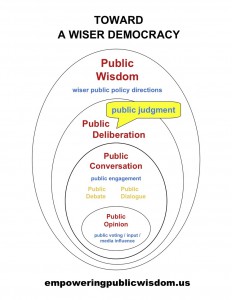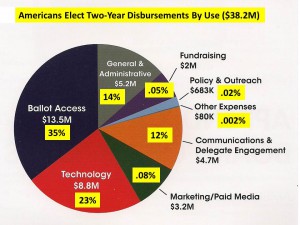
Collective thinking about public affairs
(NOTE: In this essay I intentionally subsume the thinking processes of official decision-makers into the thinking processes of the citizenry as a whole. I realize that official decision-makers can and do make decisions independently of the will of the people, unless that public will is united and organized. But elite decisions made independently of the public do not qualify as “public thinking” – at least in any democratic sense – and in this essay I am attempting to explore the nature of public thinking so that it can be upgraded and empowered to impact public policy. So here we will look at the thinking processes of the entire population and mini-publics thereof as they go about living a relatively democratic life.)
How can we think clearly about the collective thinking processes of a whole population in a democracy? How do populations reflect on public issues and come to conclusions about collective action and public policy? What follows is one framework for sorting out the different dimensions of public thinking and the quality of that thinking process.

The most basic form of public thinking is, of course, what goes on in the minds of individual citizens as they think about public affairs. We see manifestations of this – commonly called “public opinion” – in polls, in voting, in online “citizen input” sites, and in various other visible forms of citizenship that reflect the opinions of individual citizens in the population as a whole.
Public opinion evolves in a message-rich environment that includes – at the next higher level of public thinking – news media and commentaries from pundits and partisans, on talk shows and blogs, and in online forums, letters to the editor, and public hearings. This public thinking often takes the form of mediated or witnessed conversations: Diverse (often polarized) voices express their views to each other while being directly or indirectly witnessed by the public. Our society depends heavily on this kind of media-driven interaction to collectively reflect on its public issues and shape the views of its citizens and decision-makers.
Continue reading “Tom Atlee: Collective Thinking About Public Affairs”





